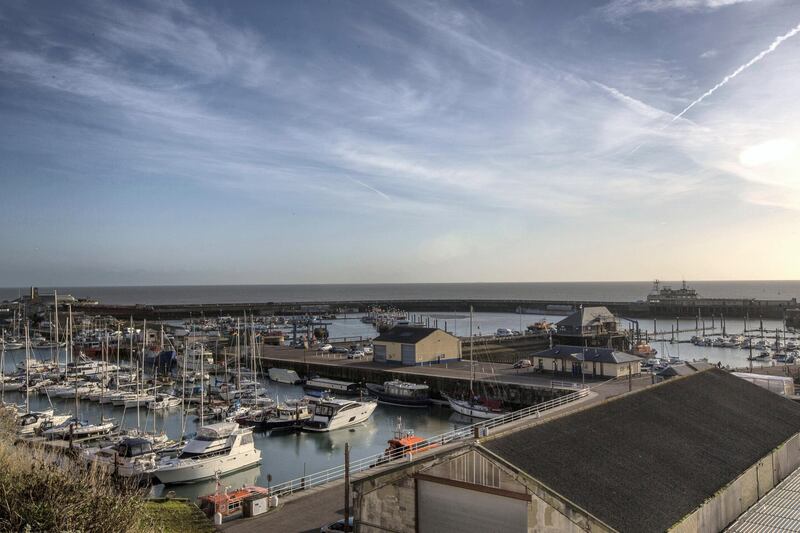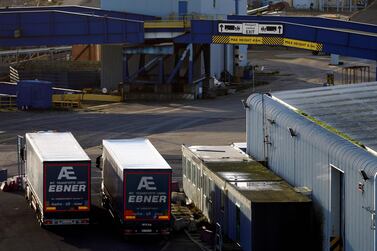Business was so good at Paul Cannon’s boat building yard on England’s south coast that he was forced to turn down work. And then came Brexit.
His three-year order backlog has dwindled to seven months. Customers from the European Union have cancelled orders while two of his Polish staff – a fifth of the workforce – have told him they are leaving the UK.
“They are in a bit of a panic,” said Mr Cannon in the small office of his workshop filled with half-built fibreglass fishing boats.
“It’s bad for me as I predominantly export to the European Union and duty on boats could be as much as 40 per cent. I’m not sure what my alternative is.”

Mr Cannon’s business, Audacious Marine, has a prime site within the harbour complex of the historic coastal town of Ramsgate, where voters overwhelmingly backed the decision to leave the European Union in the 2016 referendum.
A year ago Ramsgate had hoped to be a winner from Brexit. Officials thought a new ferry service would boost tourism and provide a direct communications lifeline with the continent.
But the latest scheme has entered folklore as a cautionary tale of bad British planning for life outside of the European Union.
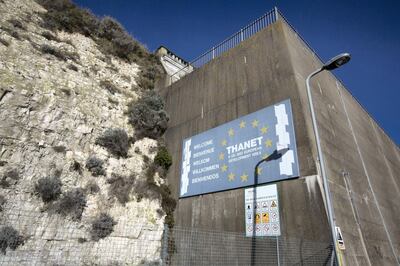
The town's last ferry service to continental Europe went bust in 2013. The UK government sought to revive the four-hour service to the Belgian port of Ostend to ensure a continuous flow of goods into the country after Brexit.
But in one of the more farcical episodes of Brexit, it emerged that the UK government had given a £13.8 million contract to a company that owned no vessels and had never run a ferry service.
The cancellation of the Seaborne Freight contract led to the collapse of the ferry project amid acrimony and accusations of government incompetence.
The Transport Secretary responsible for the saga, Chris Grayling – dubbed ‘Failing Grayling’ by the UK’s merciless tabloid press - remains an MP but is no longer a minister.
The district council, which owns the port, has since cut funding for the ferry services that were designed to be at the heart of grand project to revive the “picturesque and historic harbour … outshining many Mediterranean marinas”.
The project was a shot at reviving past glories for a district that has some of Britain's most deprived areas. Ramsgate was historically a popular holiday spot for the well-heeled. King George IV – who took the throne 200 years ago – was so impressed by Ramsgate’s hospitality that named it a Royal Harbour, the only one in the UK.
But even with the backing of monarchs, Ramsgate has suffered a similar fate to many other seaside towns over the last 50 years as the rise of affordable foreign holidays have seen Britons shun the fading grandeur of UK resorts in favour of warmer Mediterranean destinations.
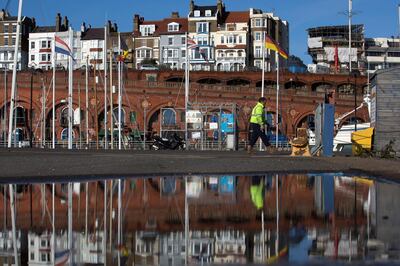
The collapse of the ferry service has left Ramsgate in a quandary: within sight of Europe on a clear day and with harbour facilities funded by the European Union but with no direct transport links to its closest customer.
People like Mr Cannon are left worried that they can remain in business if they can no longer able to sell their goods tariff-free if negotiations scheduled for 2020 fail to result in trading agreement. The main market for his small fishing boats is Ireland.
Mr Cannon, 43, shifted to boat building as the number of ferries servicing the port declined. He worked for 25 years with his father, who had the contract to bring ferries safely to the moorings and tie them up before passengers and vehicles disembarked.
At the peak of Ramsgate’s activity, the Cannon family and two employees were on duty around the clock servicing the 20 vessels a day that arrived from the ports of Dunkirk, in France, and Ostend.
Then the ferry company went bust and traffic shifted to the larger port of Dover – capable of handling larger boats and with better facilities – a few miles around the coast.
“It’s frustrating that they aren’t still running,” said Mr Cannon. “The port desperately needs a ferry service. The infrastructure came in a little bit too late.”
That infrastructure includes a long tunnel underneath the cliffs that allowed freight to bypass the town’s historic centre. Now it is used only by the odd transporter to offload cars and live animals for export. It’s a “road to nowhere,” said local historian Brian Daubney.
The economic uncertainty that has dogged Ramsgate for years helped drive anti-EU sentiment in the area. The town still has a small fishing fleet, an industry that has felt it has lost out to large-scale European trawler operations that catches 60 per cent of fish in UK waters.
Nigel Farage, the leader of the Brexit Party, and arguably the most influential politician in the EU debate, sought to capitalise on the discontent and concerns over migration in an unsuccessful run for parliament in 2015.
The concerns over migration remain – a law enforcement cutter moored in the harbour is used to intercept dinghies carrying undocumented migrants across the 26-mile waterway from France.
Despite its current woes, the town has been a destination and refuge for artists and seafarers for centuries, said Mr Daubney. Vincent van Gogh once briefly lived here.
It was the embarkation point for British soldiers to fight on the European continent in the nineteenth century. It was also the port from where hundreds of small boats left in 1940 to rescue soldiers trapped on the beaches of Dunkirk by the Germany army, one of the most celebrated retreats in British military history.
The problem with the town, say critics, is that it remains stuck in that era and has failed to capitalise on its position as a gateway to Europe.
Anthony Parish, 25, who runs a marine repair business, believes the port’s future lies in moving freight to the continent rather than passenger services.
Ramsgate has already emerged as a maintenance centre for offshore wind farms that can be viewed from the town's beach. Some of the town’s more vocal campaigning groups want to develop the marina into a playground for yacht owners with upmarket apartments.
“Ramsgate has got massive potential,” said Naomi Grady, 41, who owns Archive, a restaurant on the harbour front. “What we need is a local government and national government committed to bringing prosperity back to seaside towns.”
Toby Taylor, who runs a cycle rental company, says the town should capitalise on its royal history to bring tourists to the area.
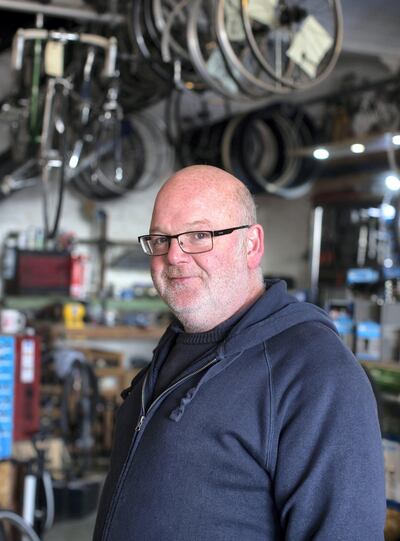
A local artist is working inside his shop making the mould for a statue of King George IV in time for next year’s celebrations to mark the 200th anniversary of securing royal status.
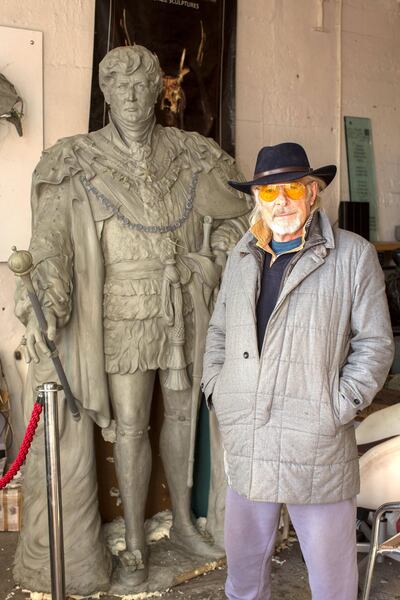
“Ramsgate is a royal harbour and they can’t take that away,” said Mr Taylor.
